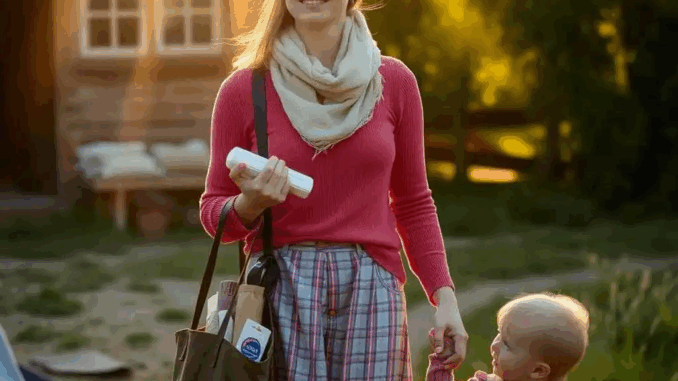

I’ve already mentally packed my suitcase with the essentials to escape with my son from my husband and his parents in this town. No, I’m not going to dedicate my life to their goats, cows, and endless vegetable gardens. They think that by marrying Javier, I’ve automatically signed up to be a free worker on their farm. But I disagree. This isn’t my life, and I don’t want my son to grow up in this pit where the only entertainment is arguing about how much milk Lucera the cow has given.
When I arrived here after the wedding, everything seemed tolerable at first. Javier was affectionate, his parents, Rosa María and her husband, seemed kind. The village looked picturesque: green fields, fresh air, silence. I even thought I could get used to it. But reality quickly opened my eyes. A week after we moved in, Rosa María handed me a bucket and sent me off to milk the goats. “You’re part of the family now, Lucía, you have to help,” she said with a smile that still makes my hair stand on end. I, a city girl who had never lifted anything heavier than a laptop, had to learn how to milk in one afternoon. That was my first warning sign.
Javier, as I discovered, had no intention of defending me. “Mom’s right, in the village we all work,” he said when I tried to complain. And so my new life began: getting up at five in the morning, feeding the animals, weeding, cleaning the house, cooking for the whole family. I felt like a maid, not a wife. If I dared ask for a day off, Rosa María would roll her eyes and deliver her sermon: “In my day, women worked from dawn to dusk without complaint.” Javier remained silent, as if it didn’t concern him.
My son, who is only three years old, is my only consolation. I look at him and know I don’t want him to grow up here, where his future would be working on the farm or moving to the city as a stranger. I want him to go to a good nursery, to study, to travel, to see the world. And here? There isn’t even a good internet connection to download drawings. When I told Rosa María I wanted to sign him up for a painting workshop in the next town, she just snorted: “What’s the point? Let him learn how to milk, that’ll help him.”
I tried to talk to Javier. I tried to explain to him that I’m suffocating here, that this isn’t what I dreamed of. But he just shrugged: “That’s life, Lucía. What more do you want?” I recently found out that Rosa María is already planning how to expand the stable and buy another cow. And, of course, the job will fall on me again. That was the last straw.
I started saving secretly. Not much, but enough for the ticket to the city. I have a friend in Madrid who has promised to help me with accommodation and work. I can already imagine my son and me getting on the bus, leaving this town, the goats, the cows, and Rosa María’s nagging behind. I dream of a small apartment where there’s only our warmth, where I can work and my son can grow up in normal conditions. I want to feel like a person again, not a work machine.
Of course I’m scared. I don’t know what my life in the city will be like. Will I find a job? Will the money come? But I know one thing: I can’t stay here. Every time I see my son playing in the yard, I think he deserves more. And so do I. I don’t want him to see his mother bending under this weight, how she loses herself because of other people’s expectations.
Rosa María recently said that I’m “too much of a city person” and that I’ll never fit in. You know what? She’s right. I don’t want to fit in here. I want to be myself, Lucía, the one who dreamed of a career, of travel, of a happy family. And I’ll do whatever it takes to get that life back. Even if I have to pack a suitcase and leave with my son to a place where no one forces us to milk cows.
Để lại một phản hồi